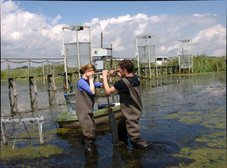
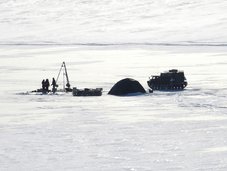
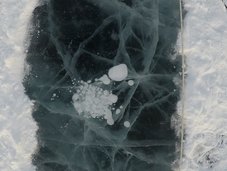
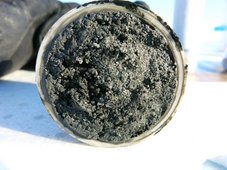
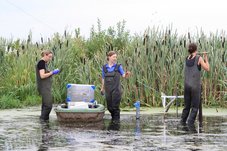
Background
Microbial communities of the terrestrial surface and subsurface drive the formation and consumption of the greenhouse gases (GHG) CO2 and CH4. They are thus key reagents of climate-induced feedbacks on our Earth surface capable both of accelerating and mitigating Global Change. For projecting how microbes react and adapt to climate change, we seek and characterize microbial sources and sinks of GHG, quantify their process rates, and study their functional and taxonomic response in space and time. We assess microbial controls on near-surface greenhouse gas fluxes and provide a microscope on the microbial carbon turnover in the terrestrial, organic rich subsurface. Our focus is thereby on areas which are highly relevant for the terrestrial carbon cycle such as permafrost regions and peatlands. We apply and establish molecular tools such as high throughput sequencing and metagenomics and combine this with process rate measurements, biogeochemistry, bioinformatics, and multivariate statistics, to uncover and map microorganisms of Earth’s interior. Our data also serve to constrain carbon-pool models.
Scientific key questions
- What are climate-relevant microbial sources and sinks of greenhouse gases at the Earth’s surface and in the subsurface?
- How will these sources and sinks respond to Global Change in terms of microbial community composition, function, abundance and activity?
- What is the timing of these structural and process-related changes and how do they synchronize?
Study sites
- Northeastern Lowland Observatory (rewetted fens of TERENO-NE)
- European bogs
- Alaska, thermokarst sediments and permafrost
- Herschel Island, Canadian high Arctic
- arctic and subarctic peatlands
Projects
- CH₄Remove - Enhancing negative methane emissions through microbial engineering
- MiDiPeat - Monitoring of peat microbial diversity through vegetation properties and its implication for carbon dynamics across European peatlands
- MOMENT - Permafrost Research Towards Integrated Observation and Modelling of the Methane Budget of Ecosystems
- RELATE - Rhizosphere mediation of biosphere-climate feedbacks
- TERENO NE - The North-Eastern German Lowland Observatory
- WETSCAPES2.0 - Sinks, links and legacies of novel ecosystems in rewetted fen landscapes / Projekt A5: Development and resilience of microbial CH4 oxidizers in rewetted fens